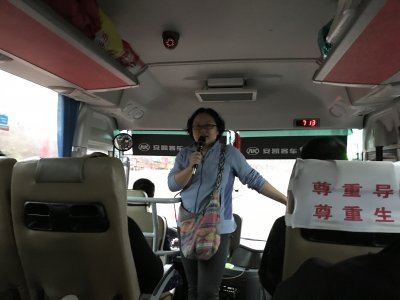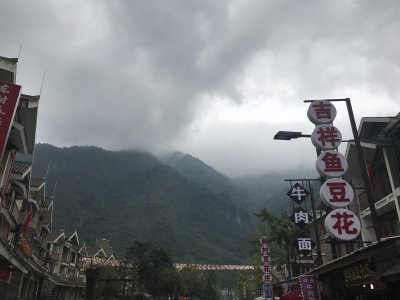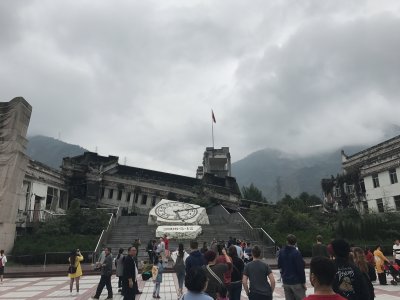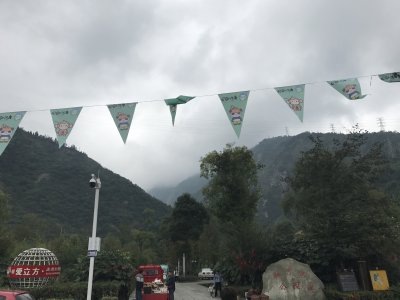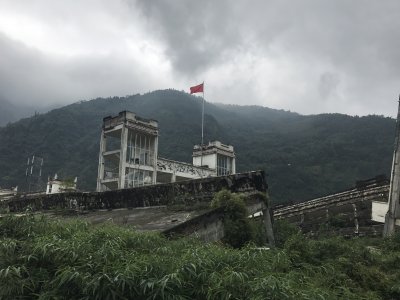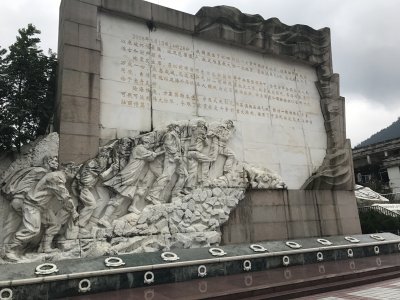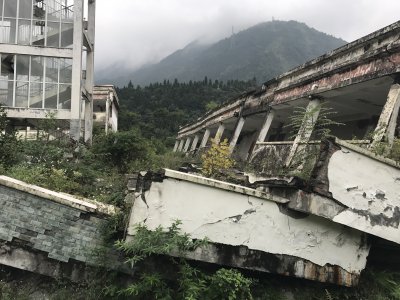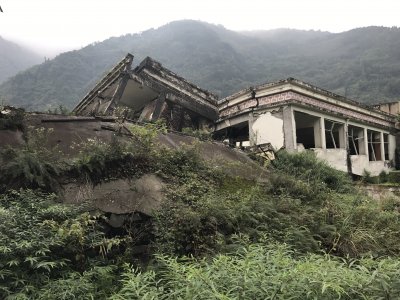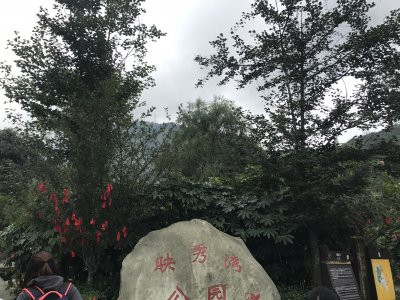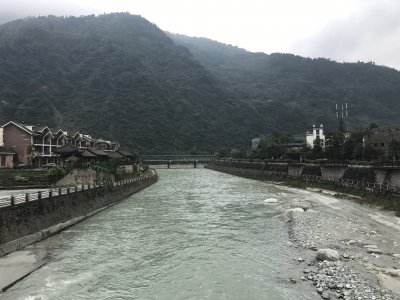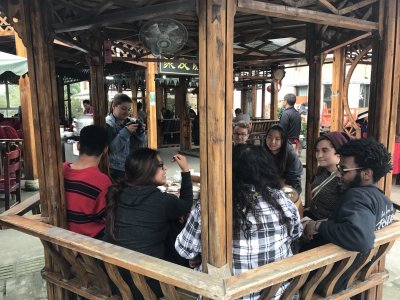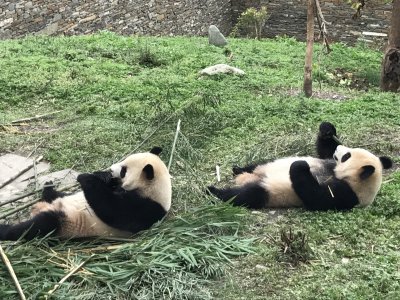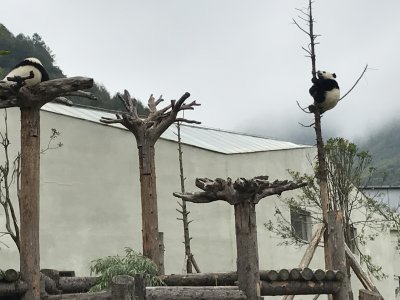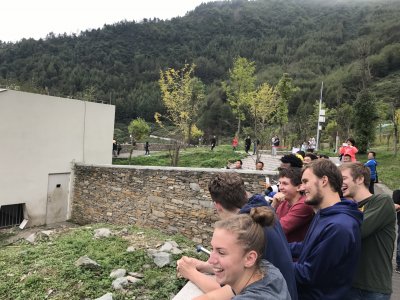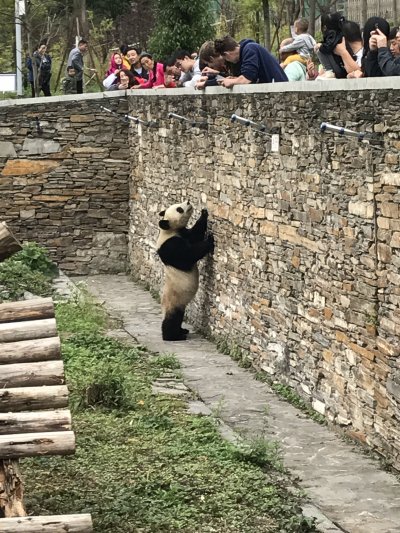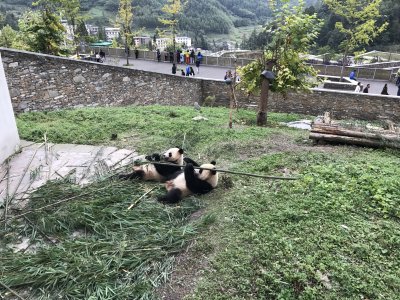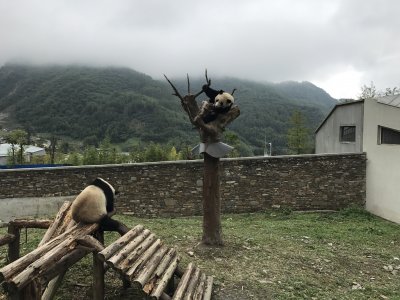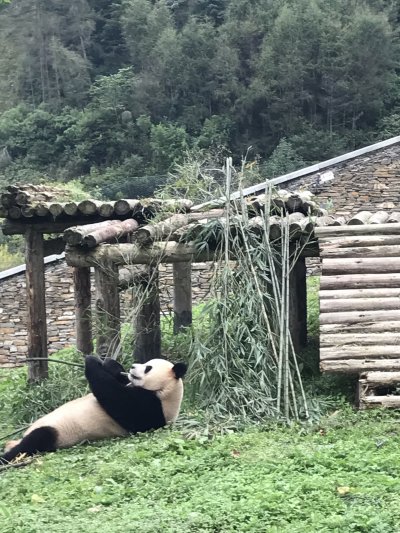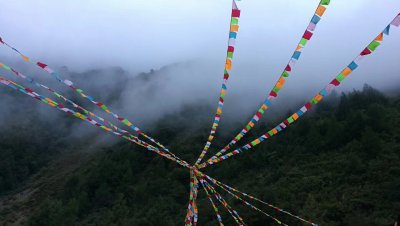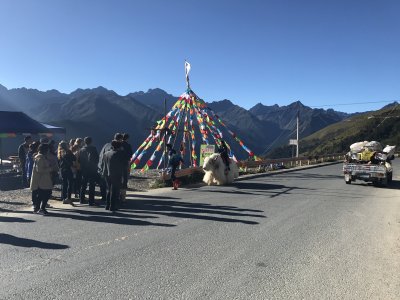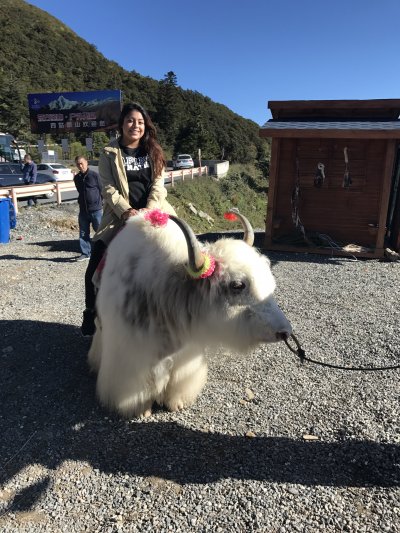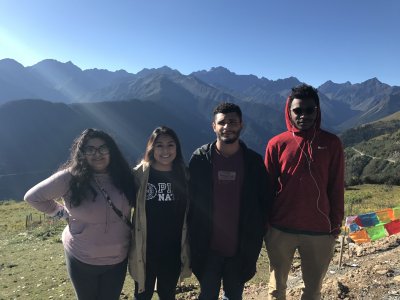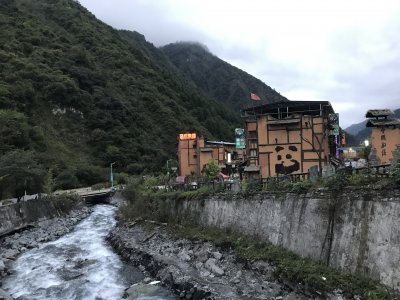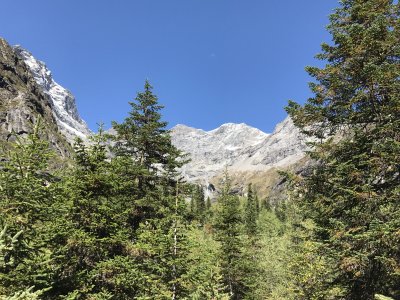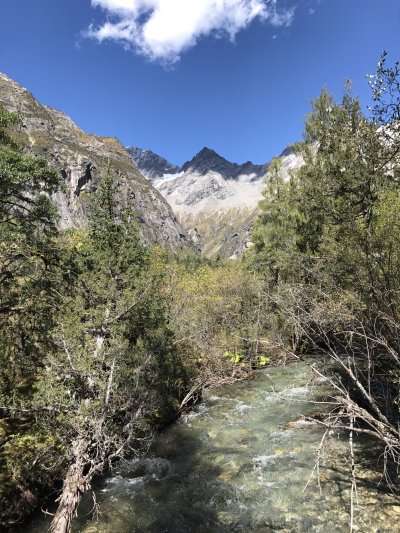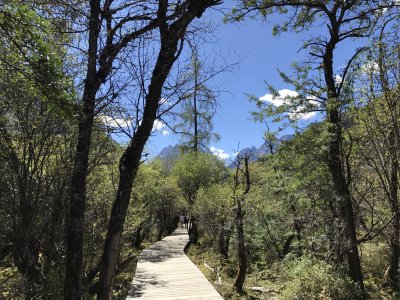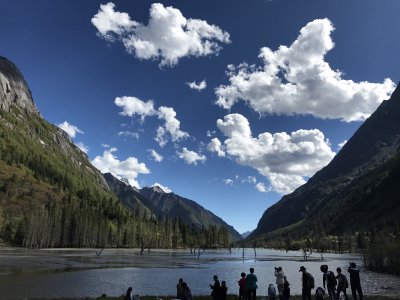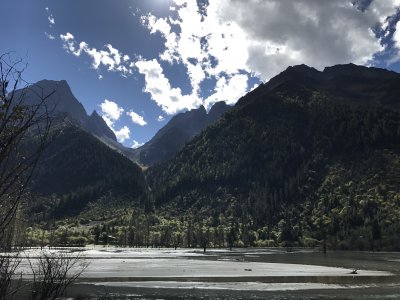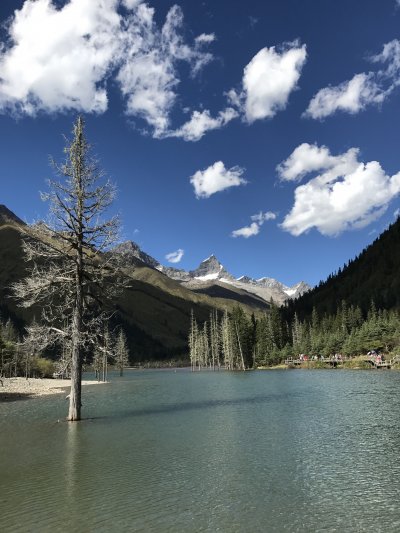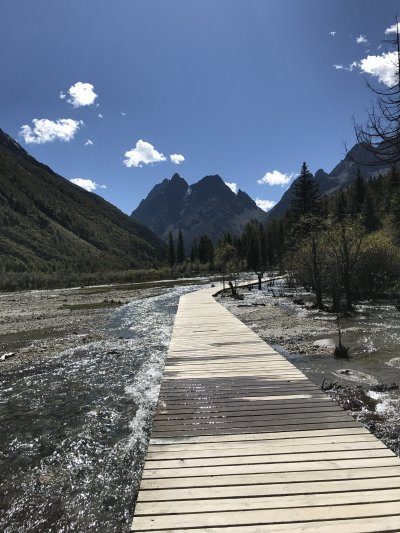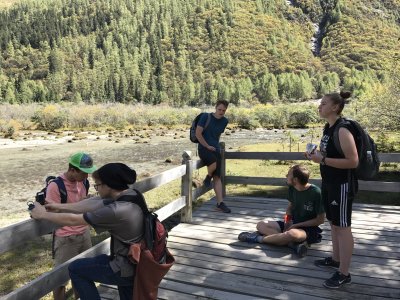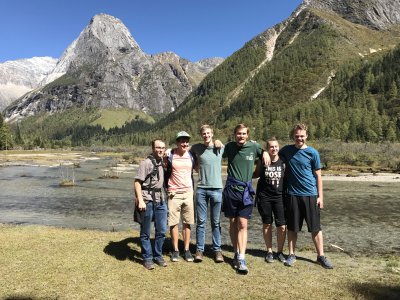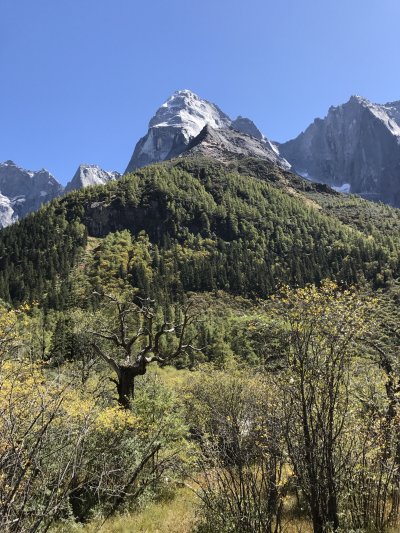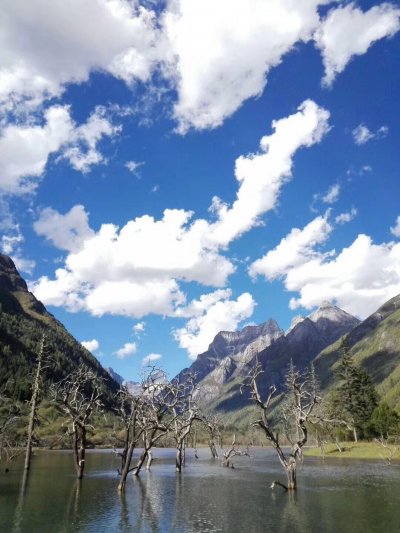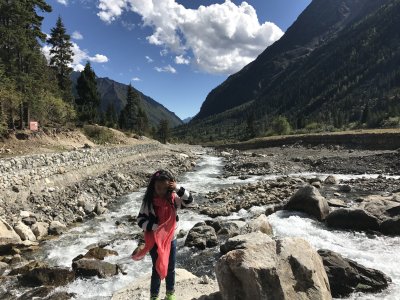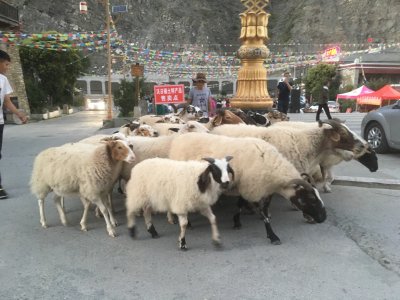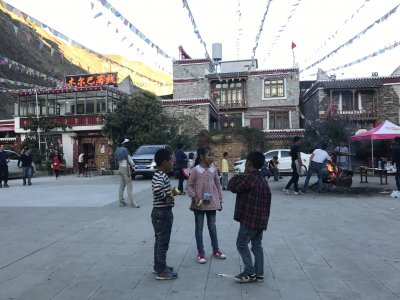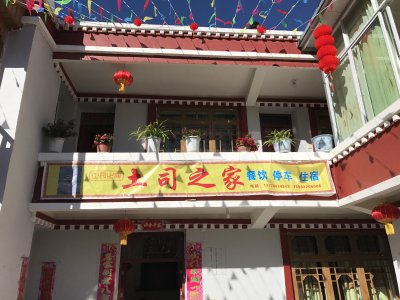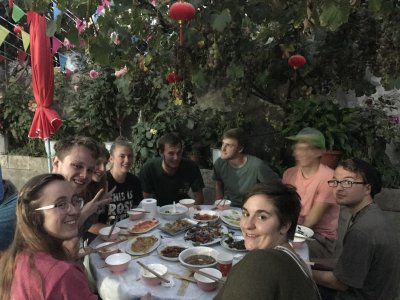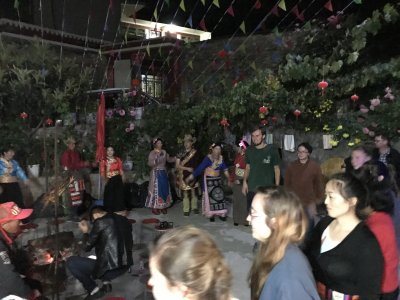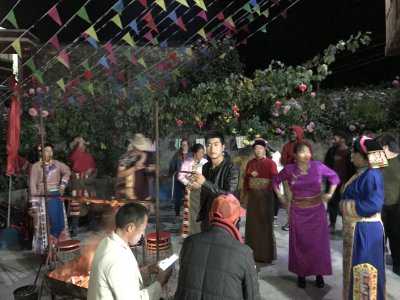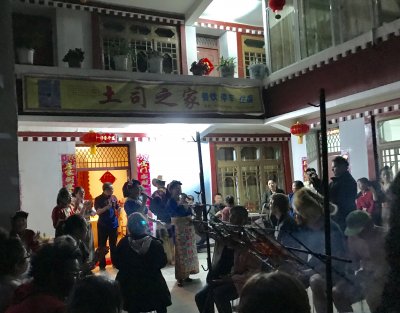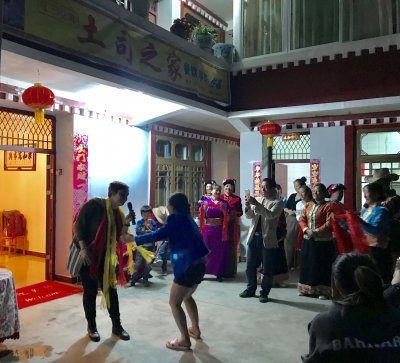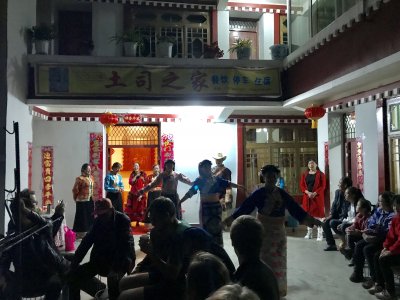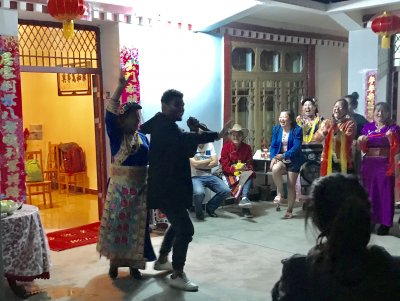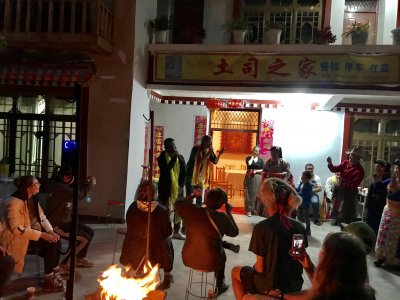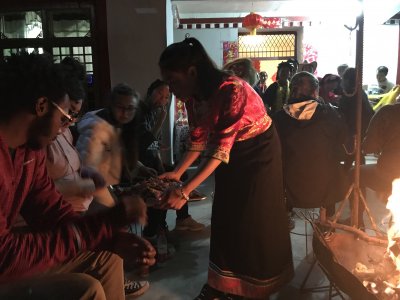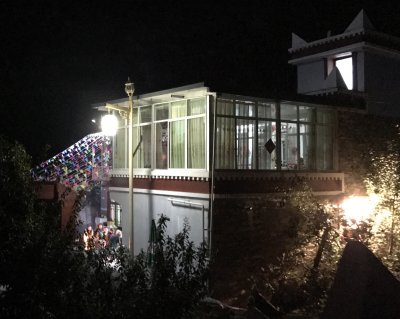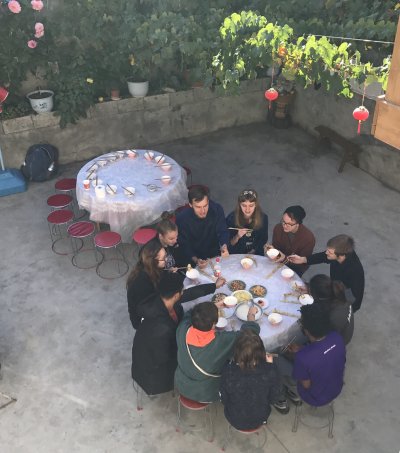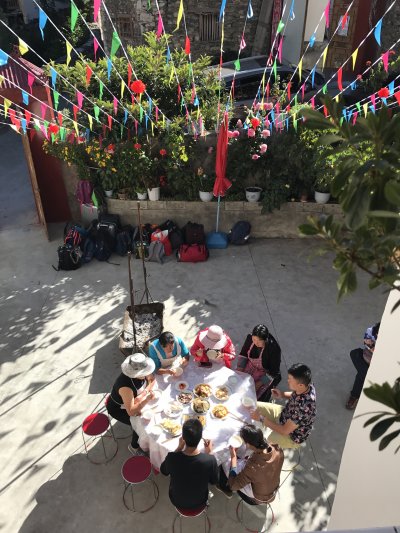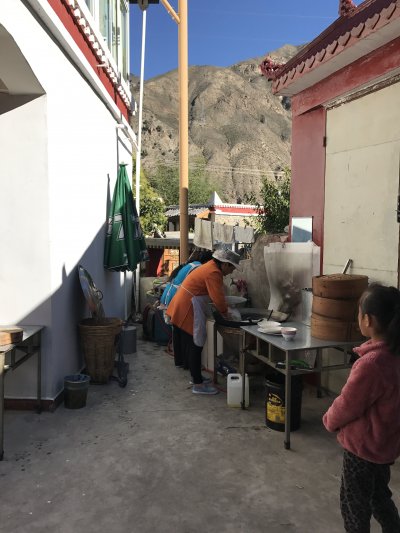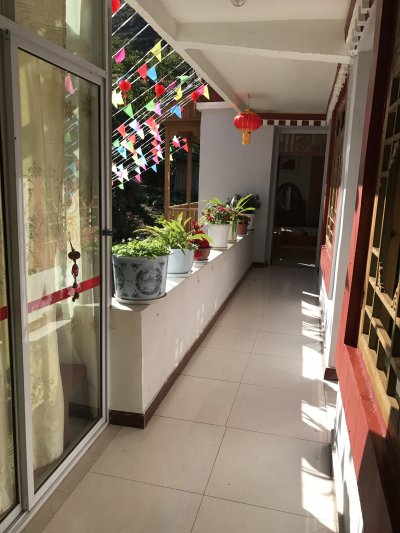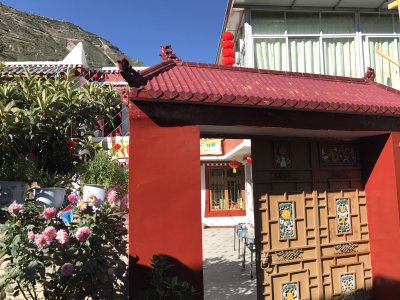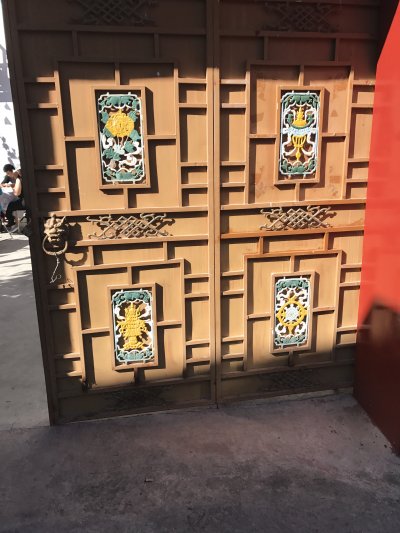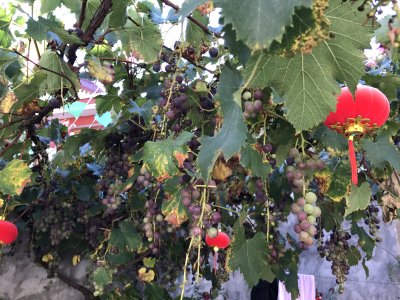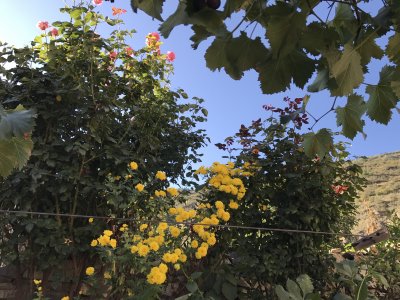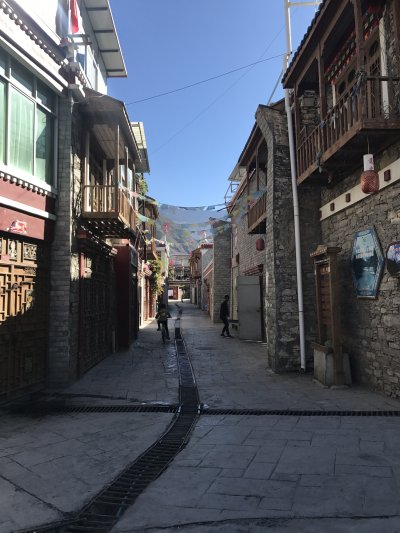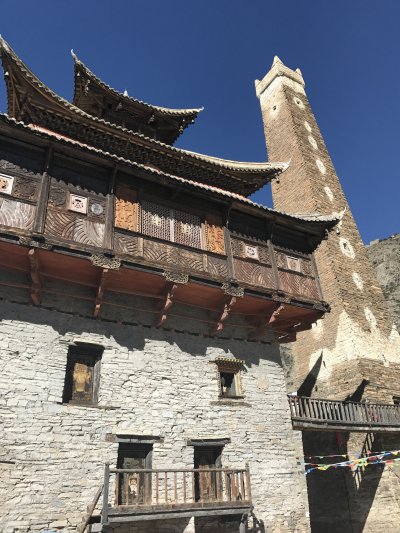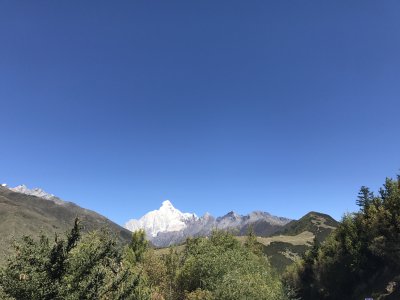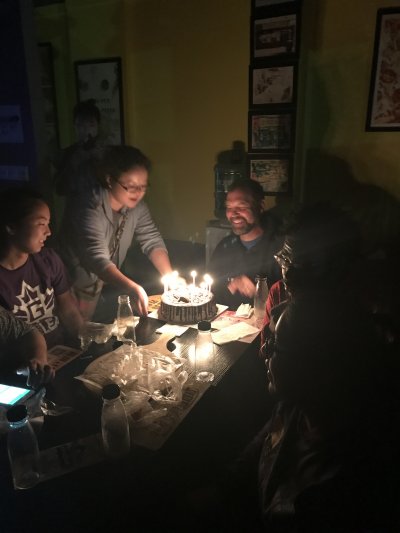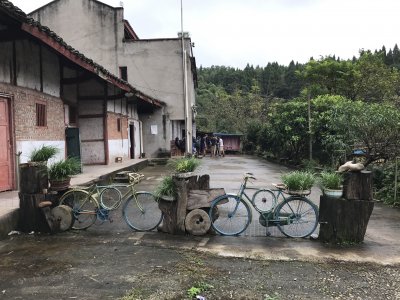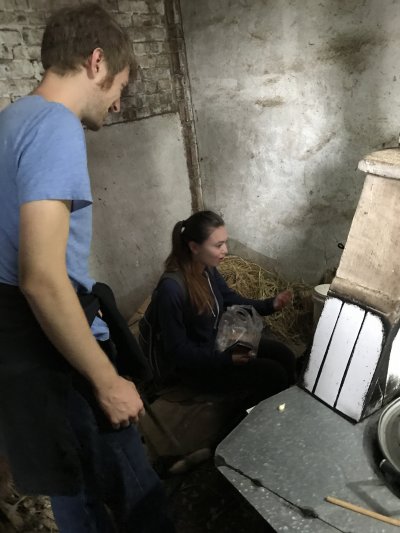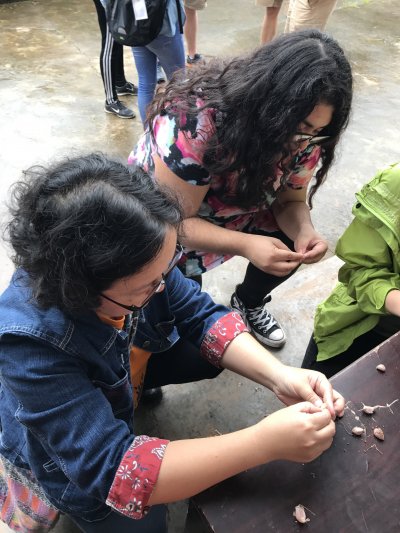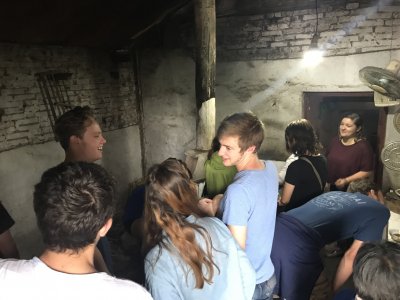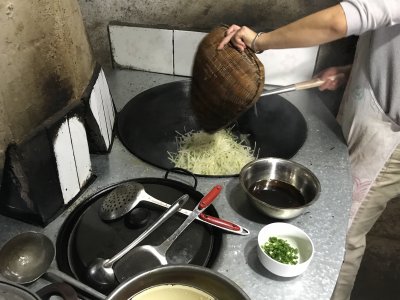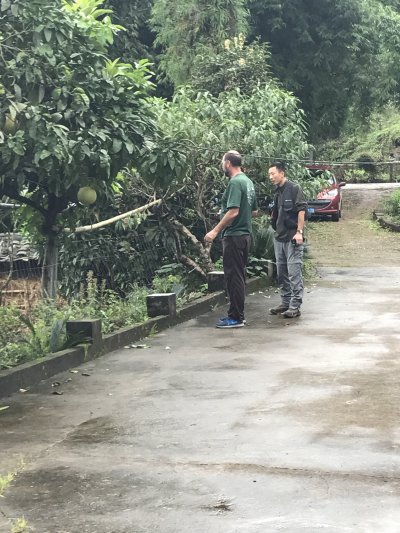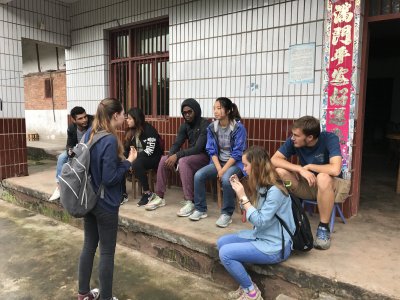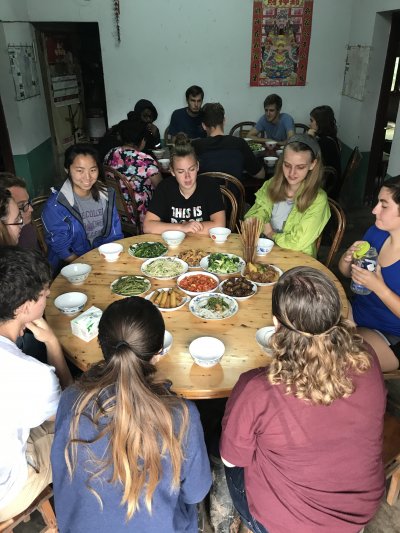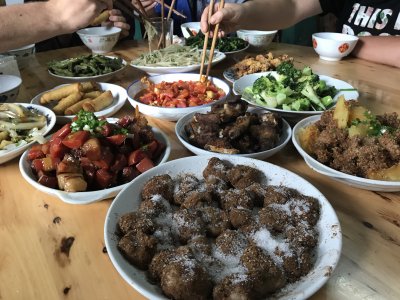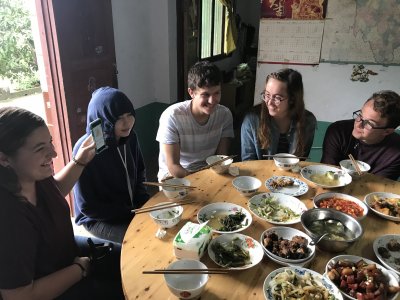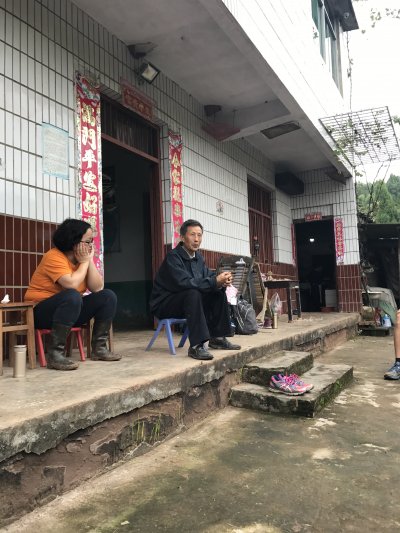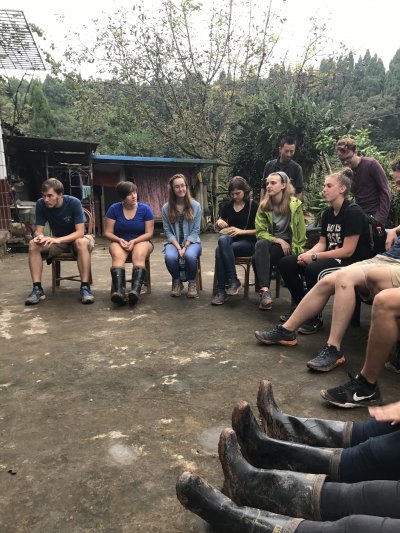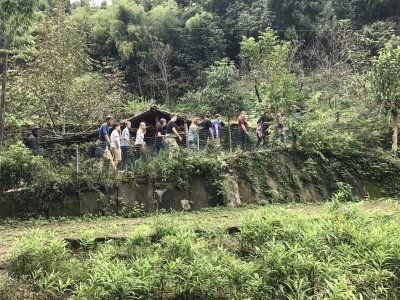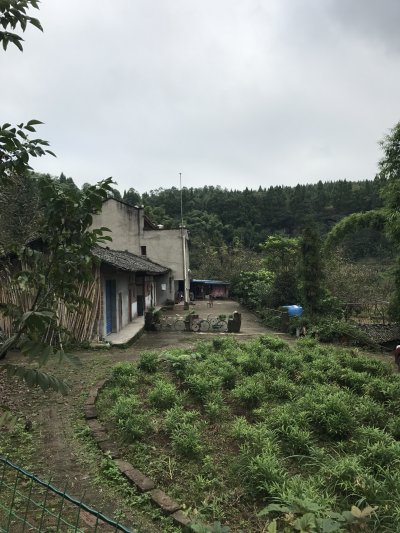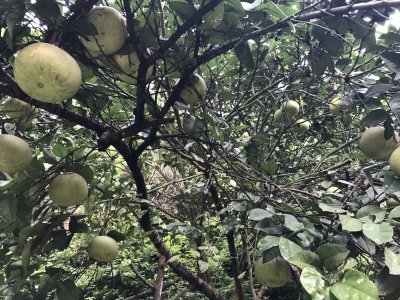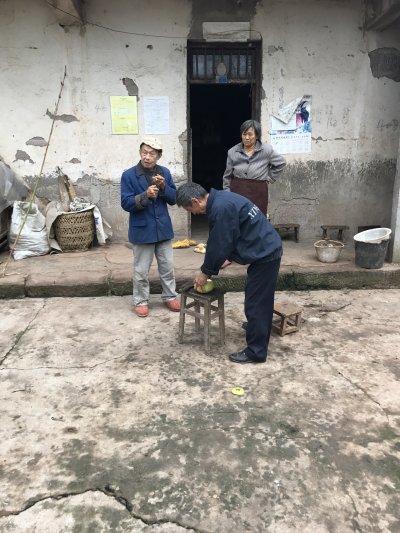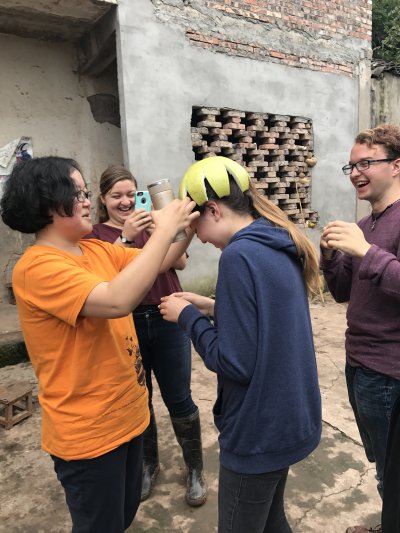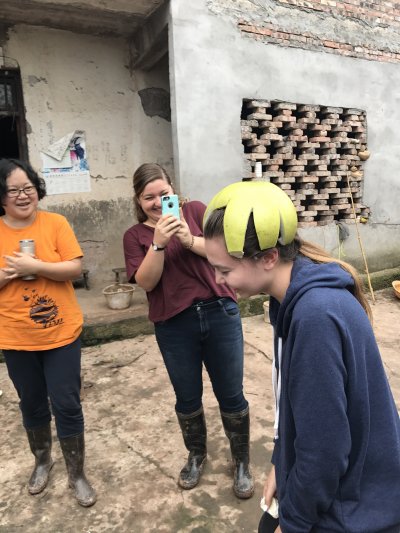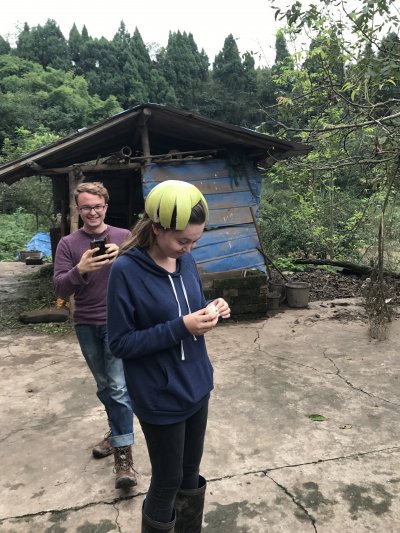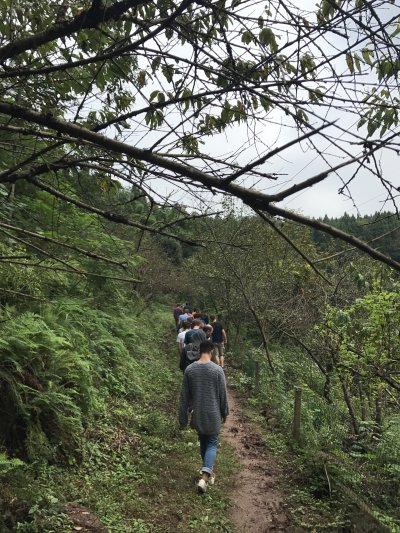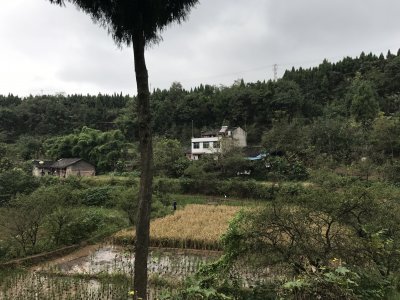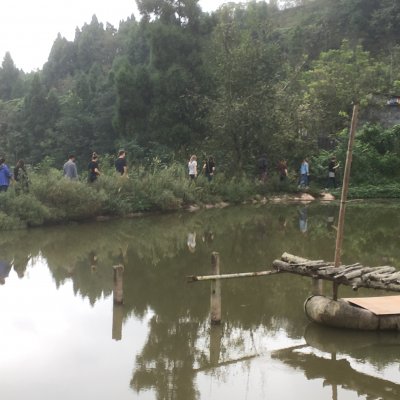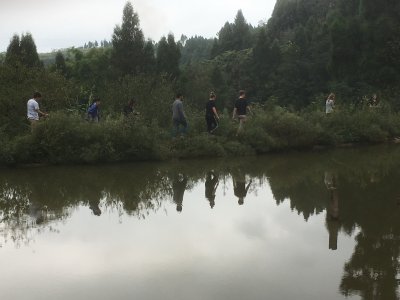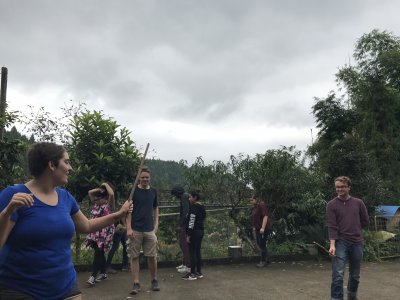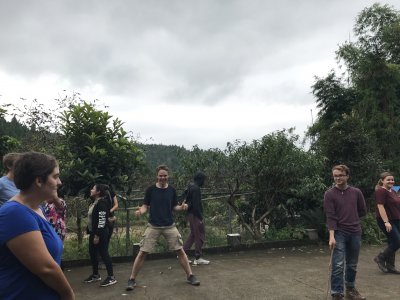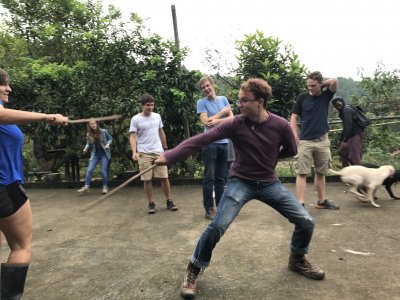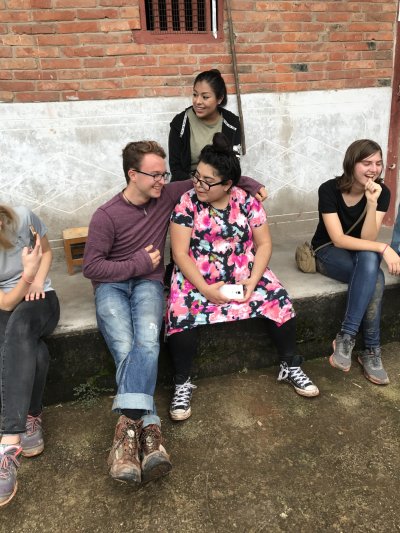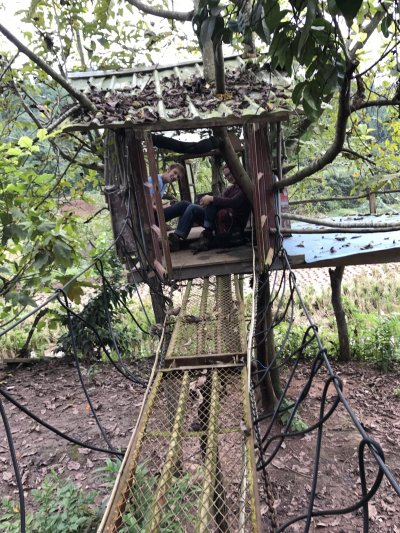To think both high and low
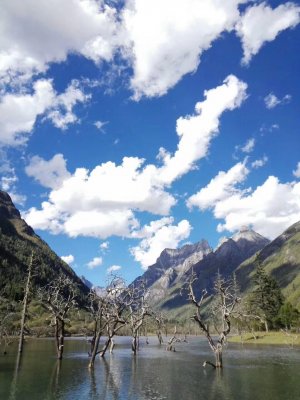
Fortified with mooncakes from Mid-Autumn Festival, we gathered early Thursday morning to travel west to Wolong and other destinations. Our first stop was Yingxiu township of Wenchuan county, where the ruins of a primary school memorialize the earthquake of 2008. The 8.0 scale quake was a devastating event for China. The relief and rebuilding efforts were immense in response to more than 100,000 lives lost, 375,000 injuries, and four-fifths of structures flattened in the impacted area.
Our bus took us next to the Shenshuping Panda Base, a research center built to protect pandas after the earthquake destroyed the Hetaoping reserve. We relished the sight of pandas at rest, feasting on bamboo, and climbing trees.
On Friday we continued westward to the Four Sisters Mountain, the highest mountain in Sichuan province sitting at more than 6,000 meters. With gorgeous views all around, we basked in these “secret valleys” of the Sichuan Himalayas for several hours.
We next journeyed through more mountainous terrain to a small village of 600 residents where we had arranged to stay with a local Tibetan family. A longer story could be told about local leaders announcing, as we arrived, that we could not stay in the village after all. It wasn’t that we weren’t welcome, but there was not a mechanism for the village to register us, an absolute requirement in China for any place where foreigners lodge. SSTers ate a wonderful meal in the family’s courtyard while our program assistant Wang Ying worked tirelessly with the police to find a way to complete the registration. In the end she was successful and we were allowed to stay. We experienced the relaxed and joyful hospitality of the village all evening. After our meal, dancers in traditional Tibetan dress arrived. For a few hours, much dancing together and singing for each other ensued as meat roasted over the fire. After our group sang Hymn 606 “Praise God from whom all blessings flow”, we tried to convince our hosts we were ready to go to bed. They politely told us we were having too much fun for sleep. Sometime after the conga line dance, they let us.
The next morning brought a hearty breakfast, time to enjoy rooftop views, and walks around the village. It was apple harvest time so we were given apples by many of the villagers as we explored. We began our journey east before noon, stopping at a vista to bid farewell to the Four Sisters. We arrived in Nanchong for a late evening meal of pizza and cake to celebrate the first China SST birthday (Dale).
Although we slept in our Nanchong homes that night, our National Holiday excursions were not over. We met mid-morning on Sunday to travel by city bus to Yingzi, a small township on the northeast edge of Nanchong. We spent the day at Duan Farm, a small family farm in its third generation. We helped prepare and ate a generous lunch made almost entirely from farm-raised ingredients and then sat in a circle with our host. The father-in-law of Wang Ying, Mr. Duan was born just a few years before the People’s Republic of China was founded in 1949. His grandparents farmed the land he currently tends, and during his lifetime he experienced the immense challenges of family farming during the Cultural Revolution and the improvements that eventually came with the economic reforms of Deng Xiaoping. In addition to farming he has served as township leader for Yingzi. He shared his hopes for the upcoming 19th National Congress of the Community Party, including new policies to make farming a more sustainable option for younger generations. Towards the end of our conversation Wang Ying spoke of her father-in-law, “He didn’t say this but I will. He is a very smart farmer. He thinks both high and low.”
What does this mean, to think both high and low? Maybe we are closer to finding out after visiting the highlands of China and muddying our shoes in the soil at Duan farm. Maybe we are closer after seeing the devastating power of a shaking earth, watching the pandas play, and joining in the Tibetan villagers’ mirth. Maybe the words of an elder farmer who never stopped toiling through revolution and reform will bring us closer to learning how to think both high and low.
